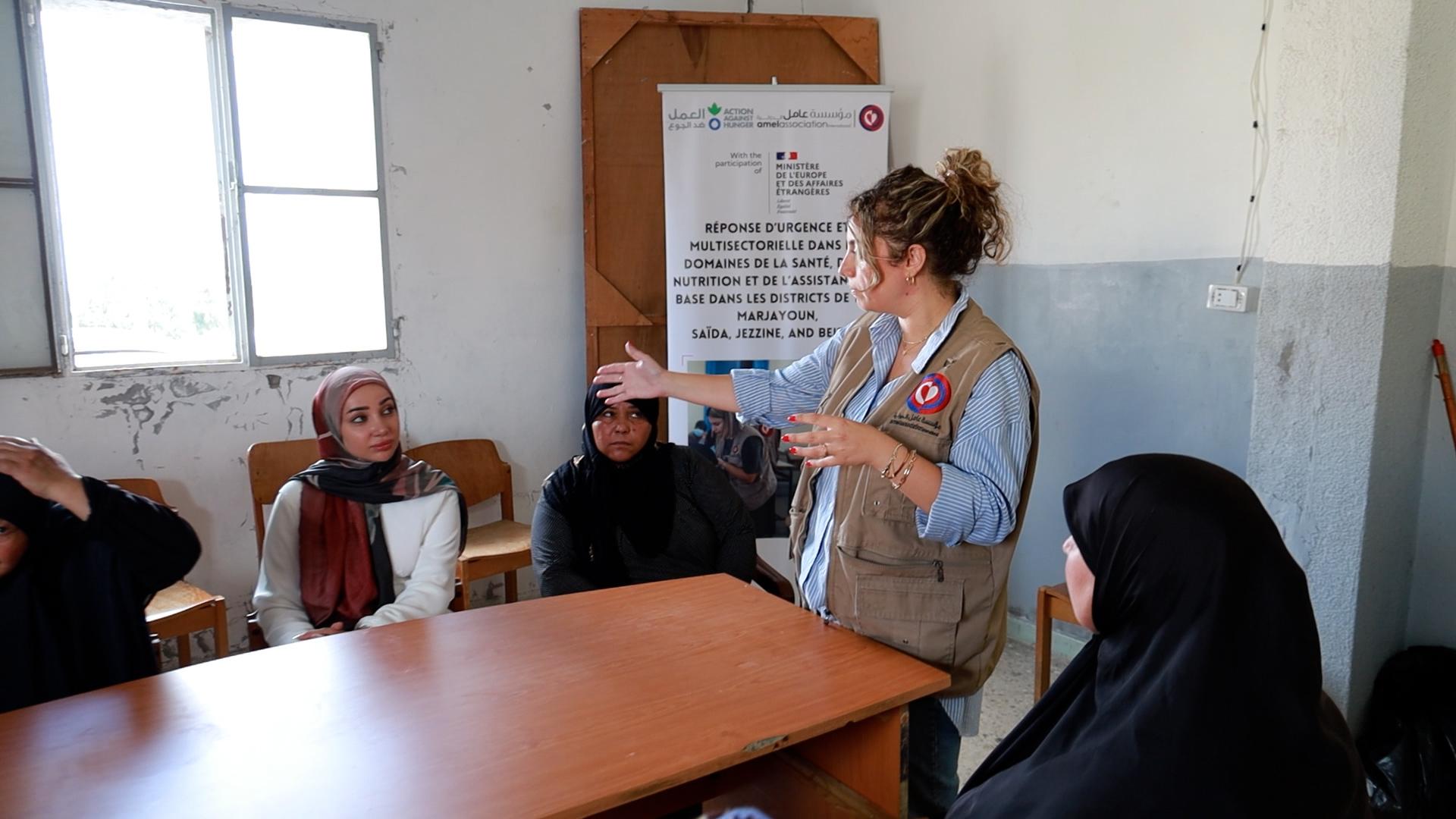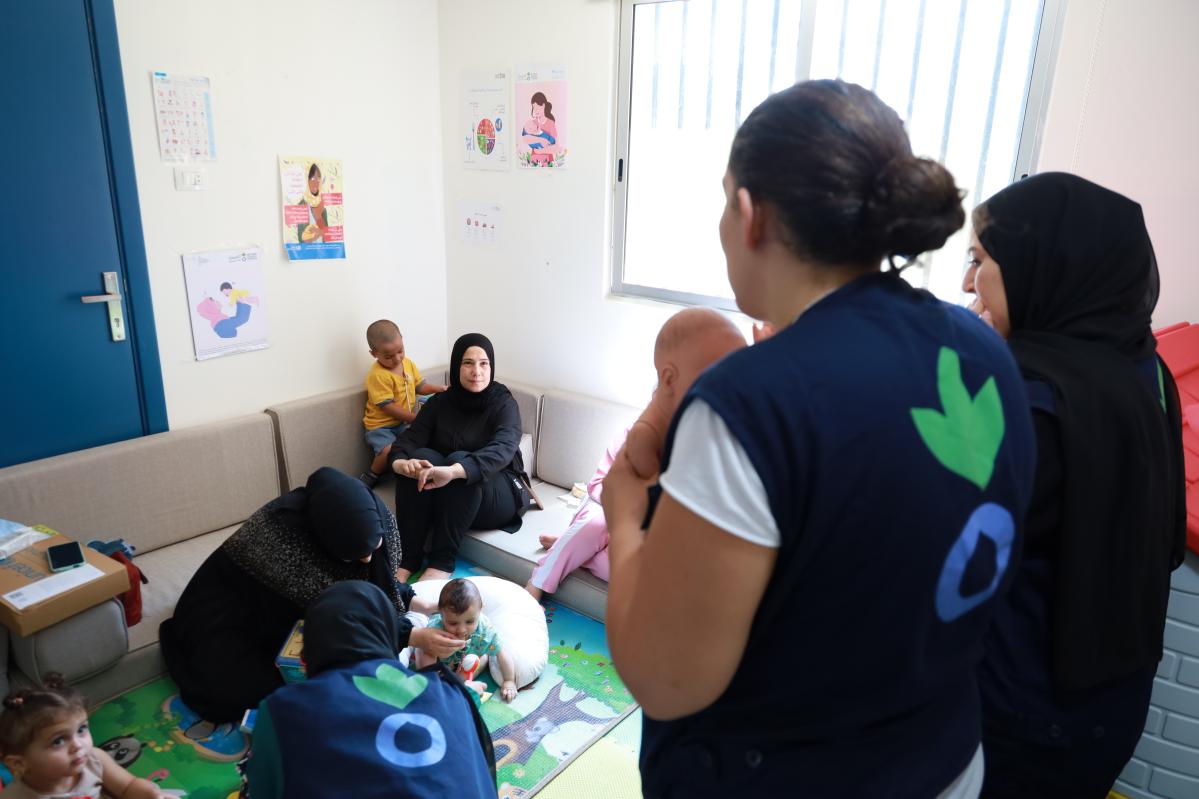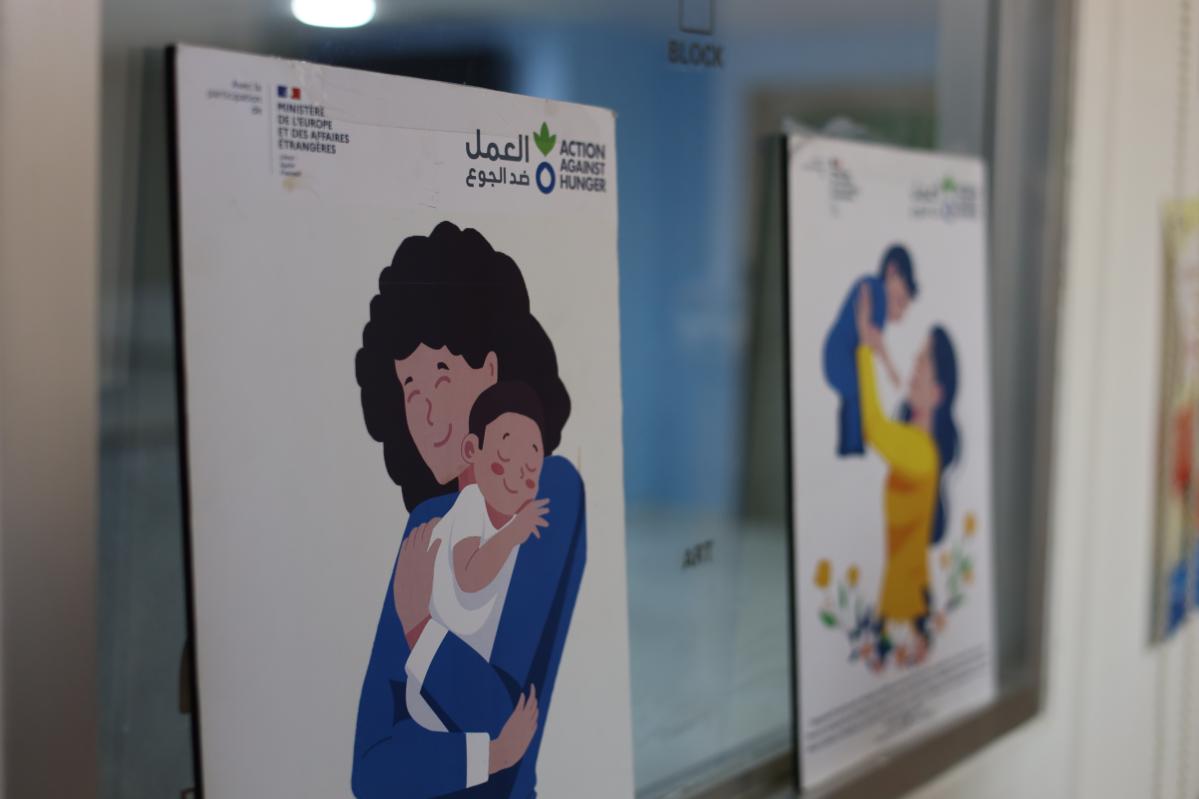

A Year of Solidarity: Joint Project by Action Against Hunger and Amel Changes the Lives of Thousands of Lebanese and Displaced People
"Each time a door slams, her daughter jumps, convinced the place has been targeted. In that moment, I understood how long the scars from the conflict will remain." said an Action Against Hunger field officer.
Following the escalation in October 2024, thousands of people in Lebanon were confronted with a new and harsh reality: displacement, loss of livelihoods, and mounting health, psychological, and social challenges. As families attempt to return home, many houses remain in ruins or unfit for habitation. Schools struggle to reopen, while homes are left without electricity, running water, or sufficient food. Access to healthcare remains severely disrupted, leaving many already vulnerable residents with nowhere to turn.
In response, Action Against Hunger and Amel International, with the support of the Crisis and Support Centre of the French Ministry for Europe and Foreign Affairs (CDCS), launched a comprehensive humanitarian project that ran from late 2024 until August 2025. Over twelve months, the initiative reached more than 15,000 people in Saida, Tyre, Nabatieh, Marjeyoun, and Beirut — bringing concrete, practical help to communities that had been left with nothing.
Mental Health: Helping People Cope with Trauma

In times of crisis, the wounds are not only physical. Mental Health became one of the most urgent – and most neglected – needs. In overcrowded shelters, families are still unsure if they will ever return to their homes, clinging to the hope they will still have a roof above their heads as many shelters are slowly closing leaving families with nowhere to go. Through three primary health care centers in Saida, Ain El-Remmaneh, and Ashrafieh, 947 people received specialized mental health support to cope with anxiety, trauma, and stress. Hundreds more joined community support activities and awareness sessions that helped restore resilience and a sense of control. "After everything I went through, my heart started racing, and my legs couldn’t carry me. But since I came to this session, I’ve benefited a lot — I felt better, and my mind was at ease. I used to be tense and afraid. They taught me not to be afraid, not to harm myself. It really brought me comfort!" — says Tarfa, a beneficiary.
Supporting Nutrition for Children and Mothers

For displaced families, putting nutritious food on the table has become a daily struggle. Many parents resort to bread and tea, unable to afford vegetables, milk, or meat. In overcrowded shelters, the lack of privacy has forced many mothers to stop breastfeeding, heightening malnutrition risks — especially for infants and toddlers.
Action Against Hunger teams screened 744 children for malnutrition, providing supplements to 507 of them. Hundreds of mothers and caregivers attended hands-on sessions on infant and young child feeding, turning daily guesswork into informed choices that protect children’s health.
“Before the session, I didn’t know how to prepare a balanced meal for my daughter. Now I can give her snacks, vegetables, and fruits — I was so happy,” says Dana, a mother who attended.
Frontline health workers were also trained to detect and address nutrition problems early, before they became life-threatening. “We now have the tools to spot problems and act quickly, not just in theory but in practice,” says a midwife with Amel.
Meeting the Basic Needs of Displaced Families
For families forced to leave their homes suddenly, the priority was to secure dignity, warmth, and safety. Many arrived at shelters with nothing but the clothes they were wearing, leaving behind all their belongings. Field teams distributed 1,357 relief kits containing blankets, mattresses, heaters, kitchen utensils, and solar lamps, small but essential items that turned bare rooms into livable spaces. In addition, emergency cash assistance was provided to 1,215 displaced families to help them meet their most urgent needs.
The Project Concludes, but an ongoing commitment is needed
As the project ended in August 2025, thousands of families remained in limbo — some in temporary shelters, others in damaged homes, still without stable income or reliable healthcare. For many, it had been the first real assistance since the crisis began. Its closure leaves a deep gap, as people continue to live day by day, uncertain how they will meet even their most basic needs. Without sustained support, their quiet struggles risk being forgotten.
